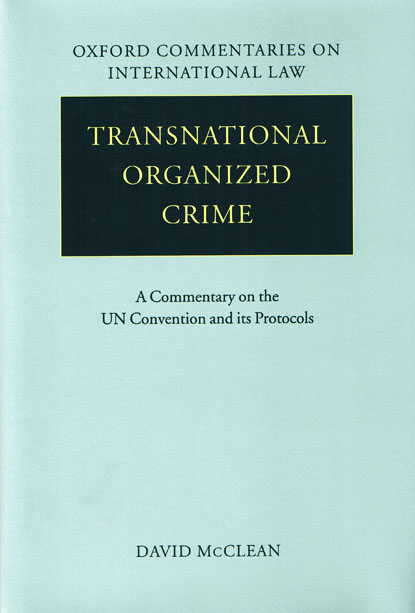
Looks at the highly topical issues of people trafficking and forced migration, as well as anti-terrorism measures post-2001.
Provides a fully up-to-date account of the state practice under the Convention, and includes information from the most recent Conference of State Parties Comprehensive analysis of new developments in international criminal co-operation such as mutual legal assistance, extradition, law-enforcement, technical assistance and training, and the seizure of assets obtained by their commission.
The Convention Against Transnational Organized Crime represents a major step forward in the internationally co-operative fight against transnational organized crime. This book offers a comprehensive, article by article legal commentary on the UN Convention Against Transnational Organized Crime and its two Protocols on Trafficking in Persons and Smuggling of Migrants. The Convention was adopted by the General Assembly in 2001, and came into force in 2003 with over 75 State Parties. The Convention defines offences, and lays down rules as to the co-operation of State Parties in various procedures aimed at preventing and detecting those offences, such as mutual legal assistance, extradition, law-enforcement cooperation, technical assistance and training, and the seizure of assets obtained by their commission.